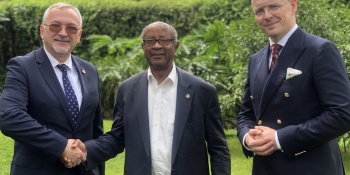Published: 28.02.2023

· Bulgaria's Supreme Court has ruled that "gender reassignment" through legal proceedings is inadmissible under Bulgaria's current state of the law.
· The Supreme Court stressed that "gender is recognized at birth and defines a person until death."
· The ruling also pointed out that a person's "change of sex" would have a negative impact on his or her eventual spouse and children, and could lead to a mutual formal relationship between persons of the same sex inherent in marriage, which would be contrary to the Bulgarian Constitution.
· The Supreme Court also said that it would be up to the legislature, not the courts, to regulate the recognition of "gender reassignment," if any.
Bulgaria's Supreme Court noted that: "the substantive law in force on the territory of the Republic of Bulgaria does not provide for the possibility to carry out, by means of judicial proceedings, based on the provisions of the Law on Population Registration, the change of data on gender, name and surname and uniform civil number in the civil status records of an applicant claiming to be a transgender person." This ruling ends a period of divergence in legal doctrine and inconsistent jurisprudence. Until now, in addition to rulings recognizing the impossibility of "gender reassignment," there have been some that allowed it.
The Supreme Court's interpretive ruling came two years after the Bulgarian Constitutional Court ruled that the concept of gender, according to the Constitution, should be understood only in a biological sense, marking a return to the fundamental principles of law. Following this judgment, the Supreme Court pointed out that "the Constitution and all Bulgarian legislation are based on an understanding of the binary nature of the human species, gender is recognized at birth and determines a person until death, has a significant impact on many aspects of life, and determines the constitutional status of persons in social relations, including within the institutions of marriage, family and motherhood."
The Bulgarian Supreme Court also pointed out that a person's legal "gender reassignment" also affects others - his or her children and spouse, and could negatively affect children and would lead to the constitutionally impermissible existence between persons of the same sex of the mutual formal relationship inherent in marriage. Both the Bulgarian Constitutional Court and now the Bulgarian Supreme Court state that whether a person who considers himself "transgender" can legally "change sex" is up to the legislature.
"The ability to regulate the conditions and consequences of an individual's self-identification with the opposite sex does not belong to the court. Resolving this issue requires scientific judgment in more than one field of knowledge (biology, medicine, psychology, sociology, ethics, law). Only the legislature has the legitimacy to do so when considering the various scientific views and the values on which society operates." - concludes the majority of the Bulgarian Supreme Court's ruling panel.
"The Bulgarian Supreme Court's ruling is another example of the country's commitment to universal and objective principles and the natural social order. Earlier, the Constitutional Court there ruled that the Istanbul Convention was incompatible with the Bulgarian Constitution, aptly pointing out that the adoption of the gender ideology on which the Convention is based makes it impossible in practice to effectively combat violence against women. The recent Supreme Court ruling also stands up for human nature, creating a dam in the way of the process of deconstructing gender categories," notes attorney Katarzyna Klimowicz, an analyst at the Ordo Iuris Institute.
Judgment of February 20, 2023 (ref. 2/2020)

29.05.2025
• Proceedings in the case of the German Mori family have concluded at the District Court in Gdańsk.

23.05.2025
• The Ordo Iuris Institute co-organized the 2nd Pan-African Conference on Family Values in Nairobi and was invited to take part in the Kenyan government’s celebration of International Day of Families.

14.05.2025
• In Nairobi, the 2nd Pan-African Conference on Family Values is taking place with the participation of representatives from Ordo Iuris.

09.05.2025
• Representatives of the Ordo Iuris Institute will participate in the Pan-African Conference on Family Values, which will begin on May 12 in Nairobi, the capital of Kenya. Ordo Iuris is a partner of the event.